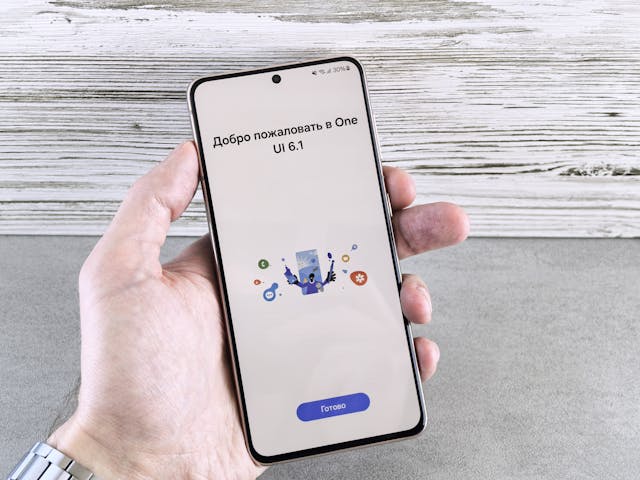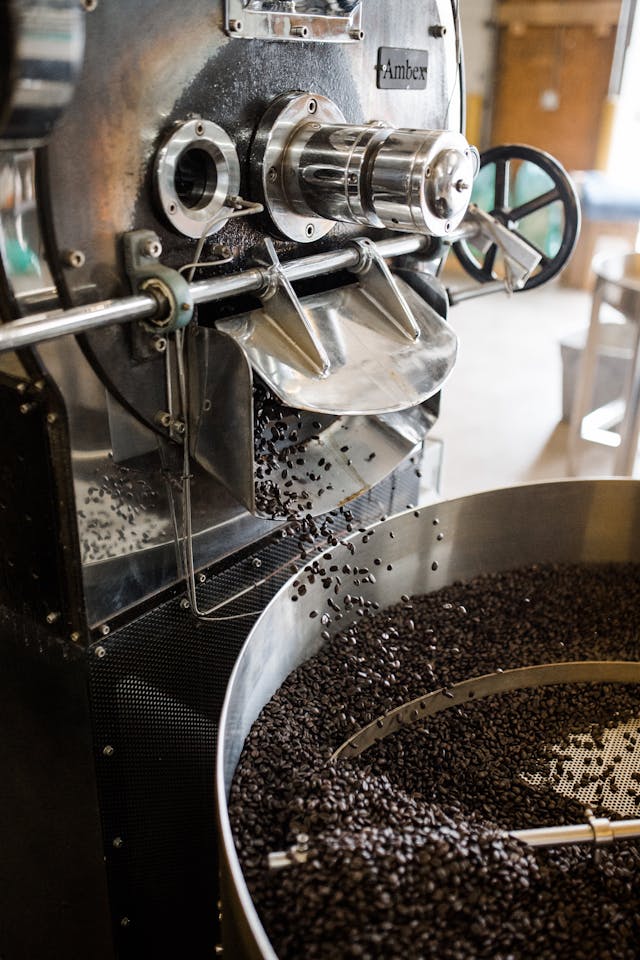Unlocking Your App's Potential: 20 AI-Generated Mobile App Names & Beyond
Your guide for 20 AI-Generated Names for Mobile Apps.

Think a great app name is just a catchy word? Think again. In today's hyper-competitive digital landscape, where over 5 million mobile apps vie for attention across major app stores, your name isn't just a label—it's your first impression, your core identity, and often, the deciding factor in whether a user taps 'download'. A captivating name can cut through the noise, resonate with your target audience, and even influence search engine optimization (SEO) and virality. It's the silent salesperson that works tirelessly, 24/7, to attract and convert.
But how do you conjure such a potent brand asset? The challenge is immense, balancing memorability with availability, relevance with uniqueness. That's where cutting-edge tools like NameBot come in, leveraging artificial intelligence to unearth unique and relevant app names, often even showing domain status and brand strategy for forward-thinking app developers. This comprehensive guide will peel back the layers of effective mobile app naming, from the psychology that drives user decisions to data-driven strategies, common pitfalls, and a robust validation framework. By the end, you'll be equipped with the knowledge and tools to select a name that doesn't just exist, but truly thrives. Ready to discover names that revolutionize your app's journey? Create your own breakthrough name.
The Psychology Behind Successful Names
At its heart, a successful app name taps into fundamental human psychology. It’s not about random sounds; it's about invoking emotions, creating associations, and minimizing cognitive load. Research shows that names that are easy to pronounce and recall significantly outperform those that are complex or forgettable. This 'fluency effect' translates directly into higher brand recognition and user engagement.
Cognitive Load and Memorability
Cognitive load refers to the mental effort required to process information. A name with low cognitive load is easily understood, remembered, and shared. Consider names like 'Slack' (for team communication) or 'Trello' (for project management). They are short, distinct, and immediately convey their purpose or feeling. In contrast, names that are overly long, difficult to spell, or laden with obscure jargon create friction, increasing the likelihood of users moving on.
Brandability and Emotional Resonance
Beyond just being memorable, a great name is highly brandable. This means it can be easily integrated into marketing materials, logos, and user interfaces, and it evokes a positive emotional response. Think 'Headspace' for meditation or 'Duolingo' for language learning. These names don't just state what the app does; they suggest an experience, a benefit, or a feeling. Emotional resonance is crucial for building a strong, lasting connection with users. A study by the American Marketing Association found that brands eliciting high emotional engagement saw a 23% higher customer retention rate.
Psychological Principles of Effective App Naming
| Principle | Description | Example App Names |
|---|---|---|
| Fluency | Easy to pronounce, spell, and remember. Reduces cognitive effort. | Zoom, Calm, Robinhood |
| Distinctiveness | Stands out from competitors, avoids generic terms. | Pinterest, Snapchat, Spotify |
| Relevance | Connects to the app's function or benefit, even subtly. | Evernote (note-taking), Waze (navigation) |
| Emotional Appeal | Evokes positive feelings, aspirations, or solutions. | Headspace, Bumble, Peloton |
| Conciseness | Short and impactful, ideal for app icons and quick recall. | Lyft, Uber, TikTok |
Proven Naming Strategies
Great names aren't born; they're strategically crafted. Understanding common naming strategies can provide a powerful framework for generating relevant and distinctive mobile app names. While AI naming tools like NameBot can quickly generate thousands of possibilities, knowing the underlying strategies helps you refine your search and understand why certain names resonate.
1. Descriptive Names
These names clearly state what the app does. They offer immediate clarity but can sometimes lack distinctiveness or become limiting if your app's functionality expands. Examples include 'Weather Channel App' or 'Scanner Pro'. While straightforward, they might struggle for memorability in a crowded market.
2. Suggestive Names
Suggestive names hint at the app's function, benefit, or experience without explicitly stating it. They leverage metaphor, analogy, or allusion to create a richer, more evocative identity. 'Evernote' suggests never-forgetting notes, 'Dropbox' suggests a place to drop files. These names offer a balance of clarity and intrigue.
3. Abstract/Invented Names
These are coined words or abstract concepts that have no inherent meaning related to the app's function. Their strength lies in their uniqueness and high brandability, offering complete control over brand perception. However, they require significant marketing effort to build association. Examples include 'Google', 'Spotify', or 'WhatsApp'. AI can be particularly powerful here, creating novel linguistic constructs that are highly brandable.
4. Experiential Names
Focus on the feeling or outcome the user experiences. 'Calm' for meditation, 'Headspace' for mental well-being, or 'Strava' (derived from 'strive') for athletic tracking. These names connect deeply with user aspirations.
5. Founder/Personal Names
Less common in modern app development but still seen, especially with strong personal brands. 'Oprah's Book Club' app would be an example. While leveraging existing recognition, they tie the brand heavily to an individual.
Naming Strategy Comparison
| Strategy | Primary Benefit | Primary Challenge | Average Funding (Series A) | Domain Availability | Brand Memorability |
|---|---|---|---|---|---|
| Descriptive | Clear, immediate understanding | Less unique, limits future growth | Moderate ($5-10M) | Low | Moderate |
| Suggestive | Evocative, memorable, flexible | Requires some thought from user | High ($10-25M) | Medium | High |
| Abstract/Invented | Highly unique, strong brand control | Requires significant marketing | Very High ($20-50M+) | High | Very High |
| Experiential | Emotional connection, relatable | Can be broad, less specific | High ($10-20M) | Medium | High |
Generate and analyze your name to see which strategy fits best.
Common Naming Mistakes to Avoid
Even with the best intentions and most advanced AI tools, certain naming pitfalls can derail your app's success. Avoiding these common mistakes is as crucial as adopting effective strategies.
1. The Geographic Trap
Naming your app after a specific city, region, or country (e.g., 'London Eats', 'NYC Rides') severely limits its scalability. While it might resonate locally, it creates an immediate barrier to global expansion and can make your app seem irrelevant to users outside that area. Actionable Advice: Opt for names that are geographically neutral, allowing for future growth without requiring a rebrand.
2. Technology Lock-in
Basing your name on a specific technology or platform (e.g., 'iChat App', 'Android Messenger') is risky. Technologies evolve, platforms change, and what's cutting-edge today can be obsolete tomorrow. This forces an expensive rebrand or makes your app seem dated. Actionable Advice: Focus on the core benefit or problem solved, not the underlying tech. 'WhatsApp' works across all platforms, not just 'iOS Chat'.
3. Spelling Creativity Curse (Misspellings & Punctuation)
While unique spellings can sometimes work (e.g., 'Flickr', 'Tumblr'), excessive creativity or the use of obscure punctuation (e.g., 'Xpert!', 'Kwik@pp') often leads to confusion, misspellings in search, and difficulty in verbal communication. Users can't find what they can't spell. Actionable Advice: Prioritize clarity and ease of recall. If you must use a creative spelling, ensure it's still intuitive and pronounceable.
4. Generic & Uninspired Names
Names like 'Mobile Pro', 'Smart App', or 'Utility Tool' are bland, forgettable, and offer no unique selling proposition. They get lost in a sea of similar-sounding applications and fail to inspire user interest or loyalty. Actionable Advice: Strive for distinctiveness. Even if descriptive, try to add a unique twist or a memorable element.
5. Difficult Pronunciation or Memory
Names that are hard to say, sound awkward, or are too long are destined for obscurity. If a user can't easily tell a friend about your app, word-of-mouth marketing is stifled. Remember the 'fluency effect'. Actionable Advice: Test names by saying them aloud, having others pronounce them, and trying to recall them after a few hours.
6. Overly Trendy Names
Jumping on linguistic trends (e.g., adding '-ify' or 'ly' to everything) can make your app feel current for a moment, but quickly dated. What's cool today is cringe tomorrow. Actionable Advice: Aim for timelessness. While you want to be modern, avoid fads that will quickly pass.
The Complete Name Validation Framework
Once you have a shortlist of promising app names, rigorous validation is crucial. This multi-faceted approach ensures your chosen name is not only creative but also viable across internal, market, and legal/digital landscapes. AI tools like NameBot can assist significantly in the initial digital validation by checking domain and app store availability.
1. Internal Validation: The SPARK Test
Before engaging external parties, put your name candidates through an internal 'SPARK' test with your team:
- Simple: Is it easy to say, spell, and remember?
- Positive: Does it evoke positive associations and avoid negative connotations?
- Available: Is the domain name and app store handle available? (NameBot is excellent for this initial check.)
- Relevant: Does it relate to your app's purpose or benefit?
- Keeps Growing: Does it allow for future expansion and not box you in?
Gather honest feedback from diverse team members. If a name struggles with multiple SPARK criteria, it's likely not the right fit.
2. Market Testing: The 5x5 Method
Your internal team isn't your target audience. Market testing is essential. The '5x5 Method' is a quick, inexpensive way to gauge public perception:
- Identify 5 target users who fit your ideal customer profile.
- Present each user with your top 5 name candidates (or a small set, e.g., 3-5).
- Ask for their initial impressions, what they think the app does, and how they feel about each name.
- Observe recall: After a few hours or days, ask them to recall the names without prompting. Which ones stick?
- Gather preference: Ask which name they prefer and why. Pay attention to common themes in their feedback.
This qualitative feedback offers invaluable insights into how your name resonates with actual users.
3. Legal and Digital Validation
This is a non-negotiable step to avoid costly legal battles and ensure your app can be found. Leveraging tools that integrate these checks is a massive time-saver. Generate and analyze your name to ensure full compliance.
- Domain Name Availability: Crucial for your website and marketing. Aim for a .com if possible, but explore relevant new TLDs (e.g., .app, .io, .tech) if .com is taken, especially for tech-focused apps. NameBot often provides immediate domain availability checks.
- App Store Handle Availability: Check Apple App Store and Google Play Store for exact match availability. Your app's name should ideally be available as its unique identifier.
- Social Media Handle Availability: Secure consistent handles across major platforms (Instagram, Twitter, Facebook, TikTok) to protect your brand and simplify marketing.
- Trademark Search: Conduct a preliminary trademark search using government databases (e.g., USPTO in the US, EUIPO in Europe) and professional legal counsel. This is paramount to avoid infringing on existing trademarks and to protect your own name. Don't skip this step!
Legal and Domain Strategy
Securing your legal and digital footprint is as critical as choosing a great name. Neglecting this step can lead to devastating consequences, from forced rebrands to expensive lawsuits. A robust strategy involves proactive domain acquisition and thorough trademark registration.
Domain Name Acquisition
Your domain name is your app's digital home. Prioritize acquiring the .com if it's available, as it's the most recognized and trusted extension. If not, consider relevant alternatives:
.app: Specifically designed for applications, signaling clarity..io,.dev,.tech: Popular among startups and developers..co,.net,.org: Established alternatives.
Budget Recommendations for Domain Investment:
| Tier | Description | Annual Budget (Approx.) | Potential Domain Type Examples |
|---|---|---|---|
| Starter | Single primary TLD (e.g., .app, .co, .io) for core brand. | $15 - $50 | MyApp.app, MyApp.io |
| Growth | Primary .com (if available) or premium TLD, plus a few key variants (e.g., common misspellings, local TLDs if applicable). | $100 - $500 | My-App.com, GetMyApp.com |
| Enterprise | Comprehensive portfolio including primary .com, all relevant TLDs, defensive registrations (e.g., common typos, competitor lookalikes). | $500 - $5000+ | MyA_pp.com, MyAppOfficial.com |
Remember that some premium domains can cost thousands or even millions to acquire if they're already owned. Tools like NameBot can help identify available domains quickly, allowing you to iterate on name ideas until you find one with strong digital availability.
Trademark Strategy
Trademarking your app name provides legal protection, preventing others from using a similar name in your industry. This is essential for long-term brand building.
- Preliminary Search: Before investing in legal counsel, use public databases to perform a basic search for identical or confusingly similar names. NameBot may offer initial checks, but always follow up with professional advice.
- Professional Legal Counsel: Engage a trademark attorney. They will conduct a comprehensive search and advise on registrability, potential conflicts, and the application process. This investment is crucial.
- Registration: File for trademark registration in your key markets (e.g., your home country, major target markets). This process can take several months to a year.
- Monitoring: Once registered, monitor for potential infringements to protect your brand's integrity.
Generate and analyze your name to understand the full scope of your brand's legal protection.
Naming Success Metrics
Choosing a name isn't the finish line; it's the starting gun. Once your app is launched, tracking key performance indicators (KPIs) can help you understand how your name is performing and resonating with your audience. While direct causality is hard to prove, a strong name often correlates with positive trends in these metrics.
- App Store Search Visibility & Conversion Rate: How often does your app appear in relevant searches, and what percentage of those searches lead to a download? A relevant and memorable name can boost this significantly.
- Direct Traffic/Brand Search Volume: Track the volume of users searching directly for your app's name on app stores and search engines. High direct search volume indicates strong brand recognition.
- Word-of-Mouth Referrals: While harder to quantify directly, monitor user feedback, social media mentions, and referral rates. An easy-to-say and memorable name facilitates organic sharing.
- Brand Sentiment & Recall: Conduct surveys or focus groups to gauge how easily users recall your app name and what emotions or associations it evokes. Positive sentiment is a strong indicator of brand health.
- User Retention Rates: A name that clearly communicates value and is easy to remember can contribute to higher initial retention by setting accurate expectations and reducing confusion.
100 Data-Driven Business Name Ideas
Leveraging AI-powered tools like NameBot, the possibilities for unique and impactful app names are endless. Below are categorized examples, demonstrating how AI can generate names that are not only creative but also strategically aligned with diverse app functionalities and brand strategies. While domain status for these exact names would require a live check, these illustrate the type of high-potential names AI can surface, often with high availability if the AI is truly innovative.
Productivity & Utility App Names
- MomentumFlow: Suggests seamless progress and efficiency. Great for task managers or habit trackers.
- SyncSphere: Implies harmonious data synchronization. Ideal for cross-device productivity tools.
- TaskPilot: Guides users through tasks. Excellent for project management or daily planners.
- FocusForge: Represents building concentration and productivity. Perfect for distraction blockers.
- ClarityOS: Suggests an operating system for clear thinking. Suited for mind-mapping or note-taking apps.
- Brightboard: Evokes a clear, collaborative space. Good for whiteboarding or brainstorming tools.
- ZenithFlow: Represents reaching peak productivity effortlessly. For advanced workflow apps.
- OptiMind: Implies optimizing mental clarity and focus. For cognitive enhancement or study aids.
- Gridwork: Suggests structured organization and efficiency. For data management or spreadsheet apps.
- NexusNode: Implies a central connection point. For connectivity or collaboration platforms.
Health & Wellness App Names
- VitalPulse: Suggests monitoring life's essential rhythms. For heart rate or health monitoring apps.
- CalmStream: Evokes tranquil flow and relaxation. Ideal for meditation or sleep aid apps.
- AuraWell: Implies a holistic sense of well-being and energy. For mindfulness or self-care apps.
- Healix: Suggests healing and positive transformation. For recovery or therapy support apps.
- GlowPath: Represents a guided journey to inner radiance. For skincare or beauty tracking apps.
- MindBloom: Evokes growth and flourishing of mental health. For mental wellness or therapy apps.
- BodyRhythm: Suggests natural bodily cycles and fitness. For workout trackers or nutrition guides.
- SereneScape: Implies a tranquil environment for relaxation. For soundscape or stress relief apps.
- NourishFlow: Represents healthy eating and digestive harmony. For diet tracking or meal planning.
- ZenPath: A clear, peaceful journey towards well-being. For yoga or mindfulness guidance.
Creative & Lifestyle App Names
- Artifex: Latin for artisan/craftsman. Perfect for creative design or drawing apps.
- FrameWorks: Suggests building and structuring visual content. For photo editing or video creation.
- MuseFlow: Implies a continuous stream of creative inspiration. For writing or idea generation apps.
- PixelVerse: Evokes a digital universe of visual creation. For graphic design or NFT art apps.
- Storyloom: Suggests weaving narratives. Ideal for storytelling or journaling apps.
- EchoTunes: Implies memorable sounds and personalized music. For music discovery or audio editing.
- VibeConnect: Suggests connecting through shared interests or moods. For social discovery or event apps.
- StyleSculpt: Represents shaping personal fashion or aesthetics. For virtual try-on or styling apps.
- GourmetGlide: Implies a smooth culinary experience. For recipe or food delivery apps.
- Wanderlusty: Evokes a strong desire for travel and exploration. For travel planning or adventure logs.
Learning & Education App Names
- CognitoLab: Suggests a laboratory for cognitive growth. For brain training or educational games.
- SkillSphere: Implies a comprehensive sphere of skills. For online course platforms or vocational training.
- LexiFlow: Suggests a fluid stream of language learning. For vocabulary building or grammar apps.
- Pathfinder Learn: Guides users on a clear learning path. For personalized education platforms.
- Quizzicality: Evokes curiosity and a love for quizzes. For trivia or test prep apps.
- EduNexus: Implies a central hub for educational resources. For e-learning portals or student tools.
- Conceptify: Suggests clarifying and understanding concepts. For conceptual learning or explanation apps.
- BrainWeave: Implies intertwining knowledge and developing intellect. For memory games or learning aids.
- InsightLens: Represents gaining clear understanding and perspective. For analytical learning tools.
- MentorFlow: Suggests a smooth flow of mentorship and guidance. For tutoring or expert advice apps.
Social & Community App Names
- GatherVerse: Implies a universe where people gather. For community building or event apps.
- Connectus: Direct and inviting for social connection. For networking or friendship apps.
- CircleShare: Suggests sharing within a trusted community. For group sharing or private social networks.
- KindredLink: Evokes connections with like-minded individuals. For niche communities or interest groups.
- VibeTribe: Implies a community sharing a common energy or interest. For subculture apps.
- CommuSphere: A comprehensive sphere for community interaction. For local or interest-based groups.
- RelayConnect: Suggests relaying messages and connecting people efficiently. For communication or group chat.
- BondFlow: Implies a smooth development of human connections. For relationship building or dating apps.
- PulseLink: Represents connecting with the collective 'pulse' of a community. For news or trending topics.
- SynergySpot: A place where collaborative energy thrives. For team collaboration or shared projects.
Conclusion
Crafting the perfect mobile app name is a multifaceted art and science, demanding a blend of creativity, psychological insight, and strategic foresight. From understanding the core principles of memorability and brandability to employing proven naming strategies and diligently avoiding common pitfalls, every step is crucial. The validation framework, encompassing internal reviews, market testing, and rigorous legal and digital checks, ensures your chosen name is not just good, but truly great.
In an era where AI can generate thousands of unique and relevant app brand ideas in moments, tools like NameBot are transforming the naming landscape, offering powerful assistance in uncovering names with strong domain status and strategic brand potential. Remember, your app's name is more than just a label—it's the cornerstone of your brand identity, a powerful marketing asset, and a critical determinant of your success in the competitive app market.
Don't leave your app's future to chance. Arm yourself with knowledge, leverage cutting-edge AI, and validate diligently. Your breakthrough mobile app name is waiting to be discovered. Start creating your powerful app name today!
Похожие статьи



